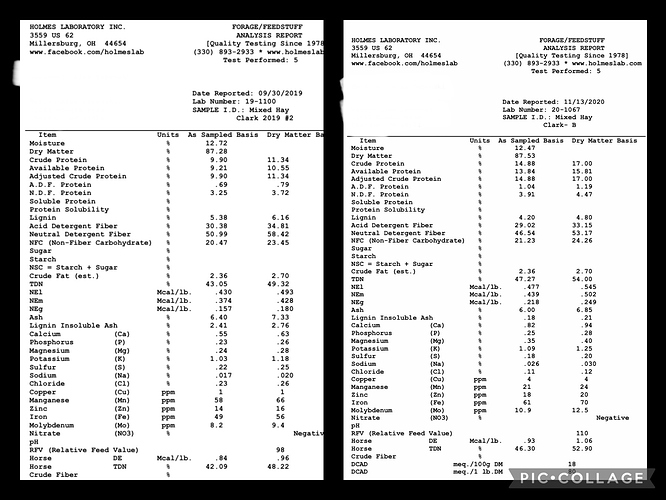My 5 YO fjord gelding has had summertime fecal water syndrome now for the two summers I’ve had him. It’s not awful, but it’s definitely a pain and a mess. It seems to start up around mid summer; July or so. It tapers off around October or so. My hope is to try and get ahead of it this year. The best thing I can come up with is that’s around the time we run out of the previous years hay and the new hay is cut. My barn has several hay fields that supply us all so it is very consistent from that angle and makes for easy testing.
In talking to my vet, he said some horses can suffer from FWS due to stemmier hay. My gelding has always gotten first cut as his weight needs to be managed. My vet did say that sometimes second cutting may not be any worse than first and is softer, but you have to test to know. Would newly cut hay be any harsher on their stomachs?
I got results from past years (I’ve been told the values don’t vary that much year to year); the one on the left is first cutting and the one in the right is second. I’m not seeing any values for starch/sugar/NSC values…Im not very familiar with interpretation, am I missing something?
The only other thing I can think of is something starts growing in the pasture that time of year that sets it’s off.



